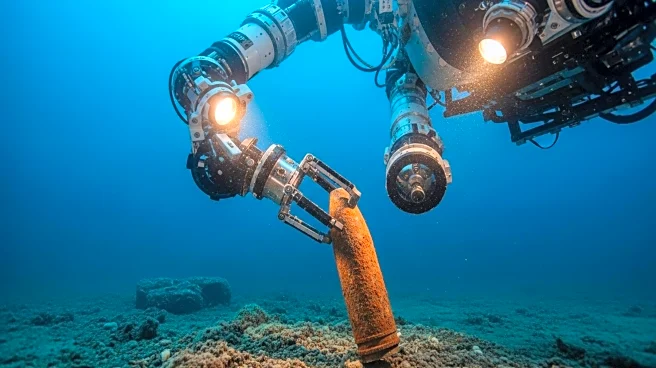What is the story about?
What's Happening?
Germany is undertaking a significant project to recover approximately 1.6 million tons of World War II ammunition from the Baltic Sea. These munitions, which were deliberately sunk post-war, pose environmental risks as their casings rust and release toxic substances. The German government has allocated 100 million euros to study and implement recovery strategies, including the use of divers and underwater robots. The project aims to prevent contamination and potential explosions, while addressing the broader issue of marine pollution caused by historical ordnance.
Why It's Important?
The recovery of WWII ammunition is crucial for safeguarding marine ecosystems and public health. Toxic substances from decaying explosives can accumulate in marine life, posing risks to biodiversity and human consumption. The initiative also highlights the ongoing impact of historical conflicts on the environment, necessitating international cooperation for effective remediation. Successful recovery efforts could serve as a model for other regions facing similar challenges, promoting global environmental stewardship.
What's Next?
Germany plans to develop automated systems for safe recovery and disposal of ammunition, potentially involving floating industrial plants at sea. The findings from current projects will inform the design of offshore facilities, with implications for international environmental policies. Collaboration with neighboring countries and global stakeholders may be necessary to address the widespread issue of underwater munitions.
Beyond the Headlines
The project underscores the ethical responsibility of nations to address the environmental legacy of past conflicts. It also raises questions about the balance between historical preservation and ecological restoration, as well as the role of technology in mitigating long-term environmental damage.
















